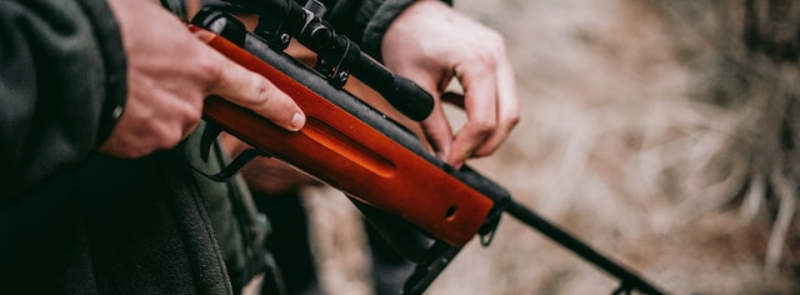
When It Occurs
Annually Fourth Saturday of September
Official Website
Timeline
Days Passed (883)
# Hashtags
#NationalHuntingAndFishingDay #OutdoorRecreation
National Hunting and Fishing Day, observed on the fourth Saturday of every September, honors the cherished outdoor pursuits of hunting and fishing, with a strong emphasis on conservation efforts. Originating from President Nixon's establishment in 1972, this day is commemorated through diverse outdoor events nationwide. Its historical origins stretch over a century, tracing back to President Theodore Roosevelt, who introduced the initial wildlife hunting regulations in the United States. This day not only celebrates these outdoor activities but also underscores the importance of preserving and safeguarding our natural resources.
History of National Hunting and Fishing Day
- Origins: National Hunting and Fishing Day was established in 1972 by Congress and signed into law by President Richard Nixon. The idea originated with Ira Joffe, a Pennsylvania sporting goods retailer, who proposed a day to recognize the contributions of hunters and anglers to conservation efforts.
- Purpose: The day aims to highlight the role of hunters and anglers in wildlife conservation, promote outdoor activities, and educate the public about the importance of sustainable use of natural resources.
Significance of National Hunting and Fishing Day
- Conservation Efforts: Hunters and anglers play a crucial role in wildlife conservation through their support of habitat preservation, wildlife management, and funding for conservation programs.
- Economic Impact: Hunting and fishing contribute significantly to the economy, supporting jobs, and generating revenue through the sale of licenses, equipment, and related services.
- Outdoor Recreation: The day encourages outdoor activities, fostering a connection with nature and promoting healthy, active lifestyles.
How to Celebrate National Hunting and Fishing Day
-
Participate in Outdoor Activities:
- Hunting: Go hunting for game such as deer, turkey, or waterfowl. Ensure you have the necessary licenses and follow all regulations and safety guidelines.
- Fishing: Spend the day fishing at a local lake, river, or ocean. Whether you prefer fly fishing, deep-sea fishing, or casting from the shore, it’s a great way to relax and enjoy nature.
-
Attend Events and Programs:
- Community Events: Attend community events organized by local wildlife agencies, conservation groups, and outdoor clubs. These events often include educational programs, demonstrations, and hands-on activities.
- Workshops and Seminars: Participate in workshops and seminars on hunting and fishing techniques, wildlife conservation, and sustainable practices.
-
Educational Activities:
- Wildlife Conservation: Learn about wildlife conservation efforts and the role of hunters and anglers in preserving habitats and species. Share this knowledge with others to raise awareness.
- Outdoor Skills: Improve your outdoor skills by taking classes on topics such as tracking, orienteering, fly tying, and game processing.
-
Engage with Youth:
- Mentorship Programs: Mentor a young person in hunting or fishing. Teach them about the importance of conservation, outdoor ethics, and responsible practices.
- Youth Activities: Participate in youth-oriented hunting and fishing activities. Many organizations offer programs specifically designed to introduce children to these sports.
-
Support Conservation Efforts:
- Volunteer: Volunteer with local conservation organizations to support habitat restoration, wildlife surveys, and clean-up projects.
- Donate: Contribute to conservation funds and organizations that work to preserve wildlife and natural habitats.
-
Social Media Engagement:
- Share Your Experience: Post pictures and stories of your hunting and fishing experiences on social media. Use hashtags like #NationalHuntingAndFishingDay to join the conversation and inspire others to participate.
- Educational Posts: Share information about the history, significance, and impact of hunting and fishing on conservation efforts. Promote responsible and sustainable practices.
Benefits of Hunting and Fishing
- Conservation Funding: Revenue from hunting and fishing licenses, permits, and taxes on equipment sales funds conservation programs, habitat restoration, and wildlife management.
- Healthy Lifestyle: Hunting and fishing promote physical activity, reduce stress, and foster a connection with nature.
- Food Source: Both activities provide a sustainable source of food, emphasizing the importance of ethical and responsible harvesting.
- Cultural Heritage: Hunting and fishing are integral to many cultural traditions and family bonding experiences, passing down skills and knowledge through generations.
Fun Facts About Hunting and Fishing
- Economic Contributions: Hunters and anglers contribute billions of dollars annually to the U.S. economy through expenditures on licenses, equipment, travel, and lodging.
- Conservation Milestones: The Pittman-Robertson Act (1937) and the Dingell-Johnson Act (1950) established federal funding mechanisms for wildlife conservation, funded by excise taxes on hunting and fishing gear.
- Public Lands: The United States boasts millions of acres of public lands where hunting and fishing are permitted, providing ample opportunities for outdoor recreation.
Conclusion
National Hunting and Fishing Day is a significant observance that celebrates the vital role of hunters and anglers in wildlife conservation and outdoor recreation. By participating in outdoor activities, attending educational events, engaging with youth, and supporting conservation efforts, individuals can honor the traditions of hunting and fishing while promoting the sustainable use of natural resources. Celebrate this day by enjoying the great outdoors, fostering a deeper connection with nature, and contributing to the preservation of wildlife and habitats for future generations.


